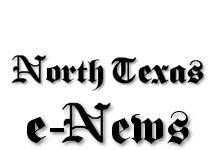FORT COLLINS, Colo. (CBS4) – For many businesses across Larimer County that operate in, and along, the Poudre and Big Thompson canyons, the lasting impacts of the Cameron Peak Fire are greater than those of when the fire was actively burning in 2020. Recreational industry workers, like fly fishing and white water rafting guides, say flooding in 2021 caused by the historic blaze drastically impacted their business.
In July of 2021, more than seven months after the Cameron Peak Fire burned out, historic and fatal flooding claimed the lives of four people in the Poudre Canyon. Rain caused landslides, sending tens of thousands of charred trees, some homes, vehicles and mud into the Poudre River.
Just weeks later similar flooding, again caused by the Cameron Peak Fire burn scar, significantly impacted the Big Thompson Canyon.
The normally pristine waters, which provide drinking and irrigation water for millions, were suddenly turned dark-brown and at times seemingly black.
Water, filled with debris, sediment and mud, became too dangerous on which to recreate. The quality of the water, and the debris in it, forced rafting and fishing companies to shut down businesses during their peak season for business.
Mountain Whitewater is one of Colorado’s premier commercial rafting companies, operating out of Fort Collins. Guide Dalton Klein took CBS4’s Dillon Thomas on a guided trip down the Poudre River in July, just days after the fatal flooding upstream. Still, well after the landslides took place, the water remained dark and murky.
“It is really black,” said Klein said of the water quality as he guided the raft downstream. “So, a lot of the debris is ash from the fire, and debris from the mudslides, getting washed into the river.”
Klein said some customers, many of which are coming to Colorado during the summer for outdoor activities, were unaware of the historic Cameron Peak Fire in 2020. When taking them out rafting he often had to explain why the water was so dark and murky.
“It’s almost not white water rafting, it is black water rafting,” Klein said during the trip.
“(The water) smells like ashes, especially when the waves come up. It stinks really bad,” one customer said as she paddled down the river.
Mountain Whitewater owner Brad Modesitt said, after years of running his business, he was prepared for years of trials to come after watching the Cameron Peak Fire.
“Right away knew it was going to be devastating for the canyon,” Modesitt said. “Having dealt with other fires before, the aftereffects of the fires sometimes are the worst parts for our business.”
Rafting is a seasonal business in Colorado. Mountain Whitewater typically has a 100-day window to make money in the canyons. As an outdoor business, Modesitt has to rely on good weather and adequate water levels in the canyon to continue operation. One day down due to lightning or low water levels is an entire day he cannot pay his seasonal staff.
When the fatal flooding in July happened, Larimer County Sheriff Justin Smith and other emergency officials were forced to close the canyon due to safety concerns. While CBS4 worked to cover the tragedy up-canyon, some rafting companies were seen operating in the canyon against orders.
Modesitt understood why the shutdown was happening and complied, even if it meant he and his staff were losing money.
“We had to cancel 120 people a day,” Modesitt said. “We have 74 employees that were not working all of a sudden.”
As he guided the raft down the Poudre River, Klein reflected on how the shutdown of the canyon impacted his ability to make ends meat.
“It can have a large impact on that next paycheck,” Klein said.
Rafting companies are not the only ones impacted by the lasting impacts of the blaze. Cabin rentals came to a halt. Restaurants like the beloved Mishawaka were without customers for days.
Others, like Dan McGann of Elkhorn Fly & Rod in Loveland, saw business drop as fishing subsided.
Not only were the waters too quick and dark to fish, but many of the fish in the rivers were killed after sediment filled their gills and suffocated them.
“The fire last year was pretty devastating,” McGann said. “We’re starting to see the true impact of what is to come after.”
The Cameron Peak Fire burned between Rocky Mountain National Park, the Big Thompson Canyon and the Poudre Canyon.
“Our permits are for the Poudre, Thompson and Rocky Mountain National Park. So, we were kind of in the triangle of terror as we’ve been calling it,” McGann said.
For nearly a month, between July and August, fishing guide requests dropped significantly. Tourists either cancelled, or quit booking, their trips between both canyons and the park.
“(The flooding) was just so quick and violent when it came,” McGann said. “It looked like oil sludge.”
The rivers, even as they seeped their way down into metro areas like Fort Collins, continued to carry the mud and debris.
“It’s dark. It is dark water,” said Adam Morris, a regular fisherman in Fort Collins. “(The Poudre) is unfishable strictly because you can’t see anything. The clarity is gone.”
Morris lives in the area and watched the Cameron Peak Fire burned for months.
However, others who are coming to Colorado to fish for vacation were often taken aback by the water quality in 2021, some questioning what caused it.
“Most people do not realize this was caused by the fire last year,” McGann said. “A lot of people are canceling trips.”
Both McGann and Modesitt said they were concerned that their businesses will continue to see fluctuating reliability on the rivers as the burn scar will take years to fully heal.
“It could get uglier for a bit rather than better,” McGann said. “Right now all we can do is ride it out and try and stay positive.”
Both Elkhorn and Mountain Whitewater worked to adjust their business model to continue to bring in money during the challenging time.
McGann said they saw an increase in sales for supplies used for lake fishing.
Modesitt said they opened the “Paddler’s Pub” on their property, a music and drinks venue that can operate even when the canyon is closed.
“(The water after floods) is a pretty incredible thing to be rafting in,” Klein said as he brought his guided trip on the Poudre to a close.
Klein said he was thankful that customers still wanted to raft the river even after such a challenging summer, and a scene they are likely to see for years to come.
“I feel very grateful and fortunate that I am able to keep doing what I do,” Klein said.
Both Modesitt and McGann said they wouldn’t let the forecast of up to a decade of challenging summers stop them from offering a true Colorado outdoor experience to all who want it.
“Being a whitewater rafting owner is a lesson in resilience. We’ve dealt with drought, high water floods, flash floods, you name it,” Modesitt said. “We have to deal with mother nature and accept that is going to happen…and go with the flow, I guess.”
“Every time it rains we are going to have to worry about it happening again,” McGann said. “This isn’t something that just goes away. Trying to battle Mother Nature is a losing battle. She’s always going to win, and she is showing her power right now.”
Credit: Source link































